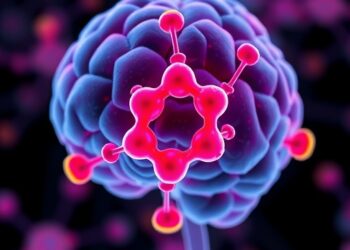Bottom Line: The MEK inhibitor trametinib (Mekinist) was an effective treatment for pediatric patients with relapsed or refractory juvenile myelomonocytic leukemia (JMML) enrolled in a phase II clinical trial, with seven of 10 patients alive after a median of two years.
Bottom Line: The MEK inhibitor trametinib (Mekinist) was an effective treatment for pediatric patients with relapsed or refractory juvenile myelomonocytic leukemia (JMML) enrolled in a phase II clinical trial, with seven of 10 patients alive after a median of two years.
Journal in Which the Study was Published: Cancer Discovery, a journal of the American Association for Cancer Research (AACR)
Authors: The senior author is Mignon Loh, MD, who is the director of the Ben Towne Center for Childhood Cancer Research and the head of the Division of Pediatric Hematology, Oncology, Bone Marrow Transplant, and Cellular Therapy at Seattle Children’s Hospital.
The first author is Elliot Stieglitz, MD, who holds the William Fries II Endowed Professorship in Pediatric Oncology at the Benioff Children’s Hospital at the University of California San Francisco (UCSF).
Background: JMML is an extremely rare and aggressive blood cancer that is typically diagnosed in infants and toddlers. The current standard of care is hematopoietic stem cell transplant (HSCT), with or without prior chemotherapy, but post-transplant relapse is common, according to Loh.
Without a second transplant, about 90% of patients die within two years, Loh noted.
“We’re subjecting these very young children to HSCT, which is one of the most intensive cancer treatments we have available,” said Stieglitz.
“If that treatment doesn’t work, the only option is to try again with the exact same therapy,” he added. “Unfortunately, only 30% of patients have a long-term response to a second transplant.”
Since the growth of JMML cells was shown to be dependent on the RAS/MAPK cellular signaling pathway, Loh, Stieglitz, and colleagues hypothesized that inhibiting MEK, a protein within this pathway, may be an effective alternative to HSCT. Prior studies, led by co-author Kevin Shannon, MD, the Roma and Marvin Auerback Distinguished Professor in Pediatric Molecular Oncology at UCSF, demonstrated that MEK inhibitors, including trametinib, showed antitumor activity in JMML mouse models.
How the Study was Conducted: Based on these findings, the researchers conducted a phase II clinical trial through the Children’s Oncology Group consortium to evaluate the safety and efficacy of trametinib in 10 pediatric patients with JMML. The median age of enrolled patients was 23.6 months, and all patients had JMML that harbored mutations in the RAS/MAPK pathway. At study entry, three patients had already experienced disease relapse after prior HSCT, and seven patients had JMML that was refractory to chemotherapy and had not undergone HSCT.
Results: Five of 10 patients had objective responses to trametinib, with two complete responses and three partial responses. Two additional patients experienced stable disease, and the remaining three patients had progressive disease.
All seven patients who experienced either stable disease or an objective response were alive at a median follow-up of 24 months, and four patients who were previously ineligible for first-line HSCT were able to undergo this treatment after receiving trametinib.
None of the patients experienced dose-limiting toxicities or cardiac dysfunction. There was one instance of grade 4 thrombocytopenia and seven grade 3 adverse events, including hypertension, neutropenia, anemia, and sepsis.
Molecular analyses of pre- and post-treatment patient samples demonstrated that, in addition to suppressing RAS/MAPK signaling, trametinib also downregulated inflammatory signaling—an unexpected finding that could explain the rapid resolution of many JMML-related symptoms in treated patients, Stieglitz noted.
Author’s Comments: “Our trial offered an option for parents who did not want to subject their children to a repeat HSCT and, in some cases, helped patients avoid HSCT entirely,” said Stieglitz. “The findings suggest that trametinib may be a less toxic alternative to HSCT for select patients.”
Loh added, “We may not eliminate HSCT for all patients, but this study shows that there is much more hope for JMML patients and their families than we previously thought. This is a really important message for families of young children with this disease.”
Based on these findings, the researchers have initiated a clinical trial to evaluate trametinib as a first-line treatment for JMML.
Study Limitations: Limitations of the study in relapsed or refractory JMML included the small sample size, the single-arm design, and the combined enrollment of patients who had and had not received prior HSCT.
Funding & Disclosures: The study was supported by funding from the National Cancer Institute, the St. Baldrick’s Foundation, Alex’s Lemonade Stand Foundation Center of Excellence, and the Leukemia & Lymphoma Society. Loh and Stieglitz declare no conflicts of interest.
Journal
Cancer Discovery
Article Title
Efficacy of the Allosteric MEK Inhibitor Trametinib in Relapsed and Refractory Juvenile Myelomonocytic Leukemia
Article Publication Date
13-Jun-2024
COI Statement
The study was supported by funding from the National Cancer Institute, the St. Baldrick’s Foundation, Alex’s Lemonade Stand Foundation Center of Excellence, and the Leukemia & Lymphoma Society. Loh and Stieglitz declare no conflicts of interest.




